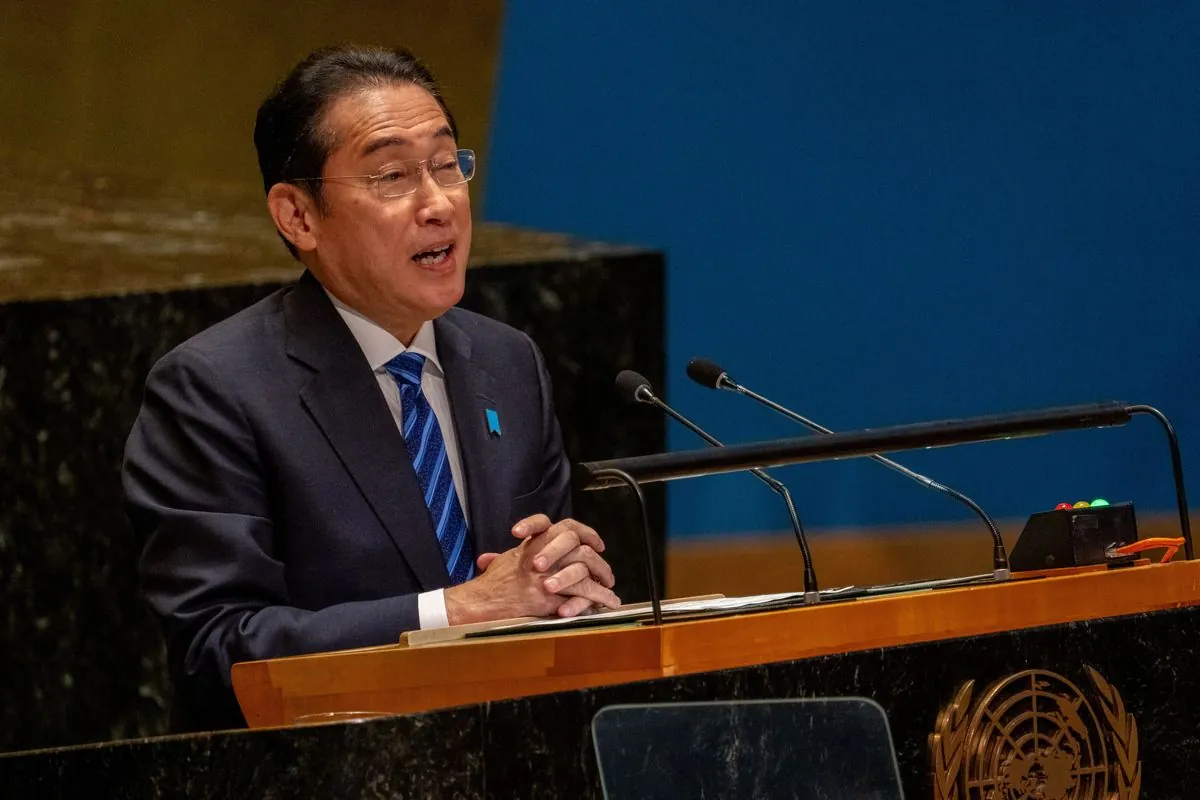Shigeru Ishiba's election as the new leader of Japan's Liberal Democratic Party (LDP) has set the stage for his ascension to the role of prime minister next week. This development has sparked a range of reactions from business leaders, economists, and political analysts, who are now speculating on the potential shifts in Japan's economic and policy landscape.
Ishiba, born in 1957 in Tottori Prefecture, brings a wealth of experience to his new role. Having served twice as Minister of Defense and being a member of the House of Representatives since 1986, he is known for his expertise in defense and security matters. His advocacy for decentralization and rural revitalization aligns with his previous role as Minister for Overcoming Population Decline and Vitalizing Local Economy from 2014 to 2016.
Takeshi Niinami, CEO of Suntory and Chairman of the Keizai Doyukai business lobby, emphasized the importance of addressing the public's distrust in the LDP following recent political funding scandals. He stated:
"We hope that the new president will demonstrate leadership in resolving the issue of 'politics and money', including the way the Political Funds Control Law should be."
This call for transparency aligns with Ishiba's own advocacy for increased clarity in political funding.
Masakazu Tokura, Chairman of the Keidanren business lobby, expressed optimism about Ishiba's capabilities, citing his experience in regional revitalization and defense sectors. This confidence reflects Ishiba's reputation as a "policy geek" with detailed knowledge across various domains.
Economic analysts are closely watching for potential shifts in monetary policy. Naka Matsuzawa of Nomura Securities noted that Ishiba's victory represents a triumph for the structural reform camp within the LDP. However, concerns about the lack of a clear growth strategy have led to some market uncertainty.
The Bank of Japan's policy path is not expected to change dramatically, according to Fred Neumann of HSBC. However, Ishiba's stance on monetary policy normalization suggests a potential for gradual changes. Economists like Shotaro Mori of SBI Shinsei Bank anticipate that the BOJ will have more leeway in its decision-making under Ishiba's leadership.
Ishiba's focus on reviving regional economies and addressing income inequality aligns with his long-standing concerns about Japan's aging population and low birth rate. His proposals to decrease the number of non-regular workers and bolster rural economies could contribute to more balanced economic growth.
On the international front, Ishiba is expected to maintain Japan's alliance with the United States while potentially pursuing a more proactive foreign policy in the Indo-Pacific region. His support for constitutional revision, particularly Article 9, and calls for increased defense spending indicate a possible shift in Japan's security posture.
Regarding energy policy, Brad Glosserman of Tama University suggests that significant changes to nuclear policy are unlikely, given Japan's energy needs and technological aspirations. Ishiba's support for nuclear power with enhanced safety measures reflects this pragmatic approach.
As Ishiba prepares to take office, the focus will likely shift to the formation of his cabinet and the potential for a general election. His ability to address Japan's economic challenges, navigate international relations, and implement his vision for regional revitalization will be closely watched in the coming months.
